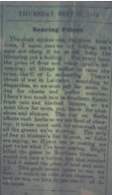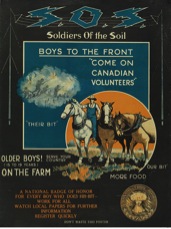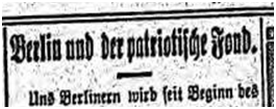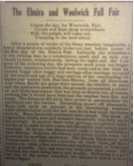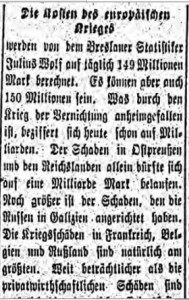Concern over the increasing price of produce and dairy items was addressed in this issue. Locals feared that cheese would continue to skyrocket, as Labrador (an independent colony of the British Empire) could not afford to ship mass quantities of cheese to Ontario with the looming threat of war in the Canada. Internationally, several products were also looking bleak. Liquor from Spain was drying up after heavy rainfall damaged the grape harvest and restricted sea trade. Servia’s herbal exports to Canada also started to dry up as the war effort continued to take its toll on Canadian imports. Another important topic being addressed was the fact that 1914 was a poor harvest year for numerous countries.
(“Soaring Prices,” Ayr News, 17 September 1914)
